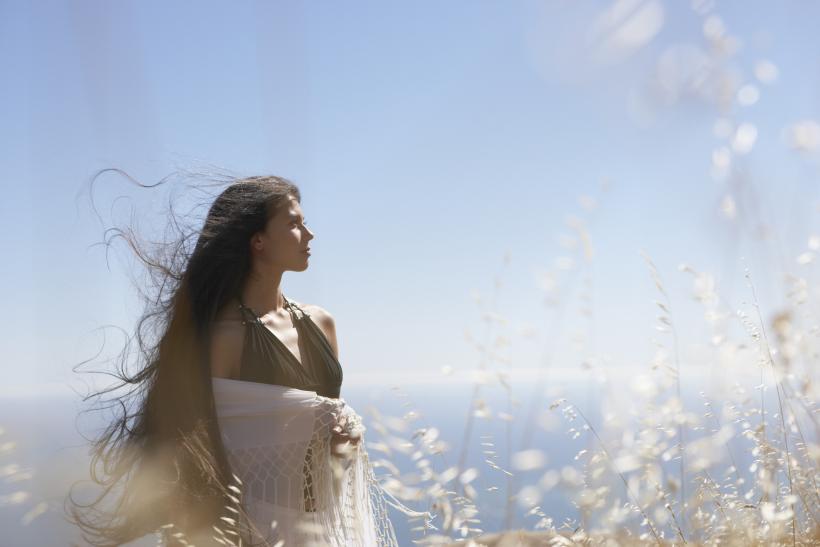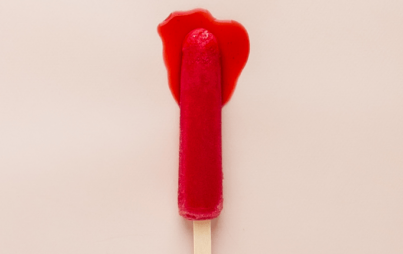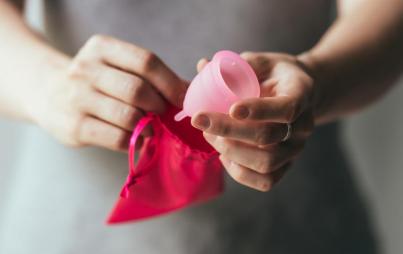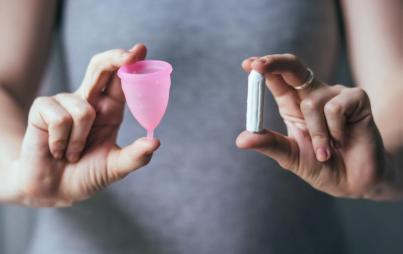
In our community, women on their moon are embraced, not shunned.
I park my car on the side of the street and turn off the engine. From my side-view mirror, I see him emerge from his mauve Camry and lean against the door. It’s been five months since our last kiss.
I take several breaths before swinging open my door. Gathering my bags from the backseat, I want to put off the moment when our bodies will come together again. The nearness scares me; I’m not sure how my body and mind will react, although I know how my heart will.
It’s an awkward hug; my hands are full.
“I won’t be able to go into the lodge tonight,” I say, pulling my heart away.
His dark eyes search my green ones. “Why not?”
“I just got my moon.”
“Oh.”
Our gazes shift towards the pavement, and I wonder if he’s thinking about the rust-colored stain that I left on his floral quilt, from that time we didn’t place a towel beneath our burning bodies. Did it wash out, the stain, from that pretty quilt — a gift from his mother, its tough fibers worn soft? Or did he fold it up and shove it to the back of his closet, along with the cards and photographs I gifted him?
Neither of us says much on the long drive south. I try to spin truths from the silence: he has no misgivings. The calm way that his hands rest on the steering wheel must mean that he’s seeing other women.
Doesn’t he miss the weight of my body on his, the sound of my breathing as he falls asleep?
When he pulls over at a roadside fruit stand and speaks to the leather-skinned man in his silky Spanish, I shove money at the vendor and stumble to the car with my mamey, shaky with regret.
Whose suggestion was it to carpool?
At La Tierra, the land where our community has been holding sweat lodges for many moons, we join our friends who arrive from all corners of the county. Laughs and bear hugs; it is good to be amongst family. We used to be a unit, he and I, but now we are two distinct entities. Divided, and yet, somehow connected.
There is much to prepare for the inipi. Several men keep the huge fire roaring beside the lodge, its unwavering heat making the South Florida afternoon even more unbearable. Bearing pitchforks, the men rearrange the stones sitting in the center of the flames; these stones, the elders of this earth, will be brought into the lodge one by one during the ceremony and splashed with water that will sizzle and sing.
An inipi, the Lakota word for sweat lodge, is a purification ceremony in which people are invited to sing, pray, and sweat away impurities.
It’s a spiritual rebirth, the chance for a clean slate — one that I am desperate for.
But being on my moon, I am not allowed to take part in the ceremony — not even the preparations. Instead, I nuzzle a friend’s baby in my arms while her mama pulls quilts over the dome-shaped skeleton crafted from sinuous willow trees.
In Native American tradition, women on their moon are thought to be at their most powerful. For this reason, they are not allowed to participate in any ceremonial traditions while they are menstruating. Women on their moon cannot enter the sacred inipi, nor can they attend the Sundance, an ancient summer ceremony held on reservations across the Plains. Menstruating women are forced to leave if they begin their cycle anytime during the eight-day ceremony.
You Might Also Like: A Love Letter To Those Whose Periods Make Them Cry
But in our community, women on their moon are embraced, not shunned. We are still encouraged to be a part of the ceremony, even if we must be apart from it in many ways. There is another woman at La Tierra who is also on her moon, and we are invited to build our own fire beside the inipi. We will have a ceremony of our own.
Soon, the sweat lodge is dressed, and the stones are hot. The women change into long skirts, and the men strip down to their shorts. Everyone gathers to bless the seven directions and smudge themselves with sage, a cleansing ritual before entering the lodge. Meanwhile, my moon friend and I tend to our fire and make an altar in the grass, shadows stretching in the setting sun.
The medicine man has everyone pass beside us on their way inside the lodge, a gesture of gratitude towards us women and our wombs. I busy myself arranging objects on a colorful sarong — prayer ties fashioned from red cloth, a seashell full of cedar, palo santo, a turtle’s mottled shell, a collection of jagged crystals.
I wish to be like the water, like the moon — always transforming, renewing, resurrecting.
The sun leaves a golden glow on the land, and nearly everyone disappears inside the inipi. I cannot help but watch the man who has my heart carry stones from the sacred fire to the mouth of the lodge, beads of sweat brightened by firelight. The last stone is passed inside the lodge, and he crawls in after it. The medicine man pulls down the blanket that covers the entrance, taking with it any traces of light, and the drumming begins.
The dark space of the inipi represents the womb, the birthplace of life.
Although I am not inside, I can hear the rocks singing as their pure heat singes handfuls of dry cedar and sweetgrass. I imagine water seething, its steam rising and stinging my friends’ faces, their features hidden by deafening darkness. I can smell the slow burn of copal melting, and my heartbeat harmonizes with the steady rhythm of rough hands beating against soft buffalo hide.
Outside, the dark moon is nowhere to be seen. In the lulls between drumming, we, the moon women, sing songs around the fire — water songs and prayers of deep gratitude. In song and prayer, the message is the same. I wish to be like the water, like the moon — always transforming, renewing, resurrecting.
After a time, I leave our sweet fire and wander into the field. Evening dew kisses bare skin, and the fierce sound of drumming follows my footsteps, mellowing with every step. Sky and heartbeat are my only companions.
It is said that women on their moon are already in ceremony.
In the darkness, I squat down, reach inside myself, and release my menstrual cup from my body. Tipping the cup, I stain the earth with liquid life. This shedding of womb-lining is my offering, my prayer, my blood. My purification ceremony.
I lay my hands upon the earth. Here, with the pulse of our Creator beneath my palms, I remember. The moon and the water, I carry them inside me always.








